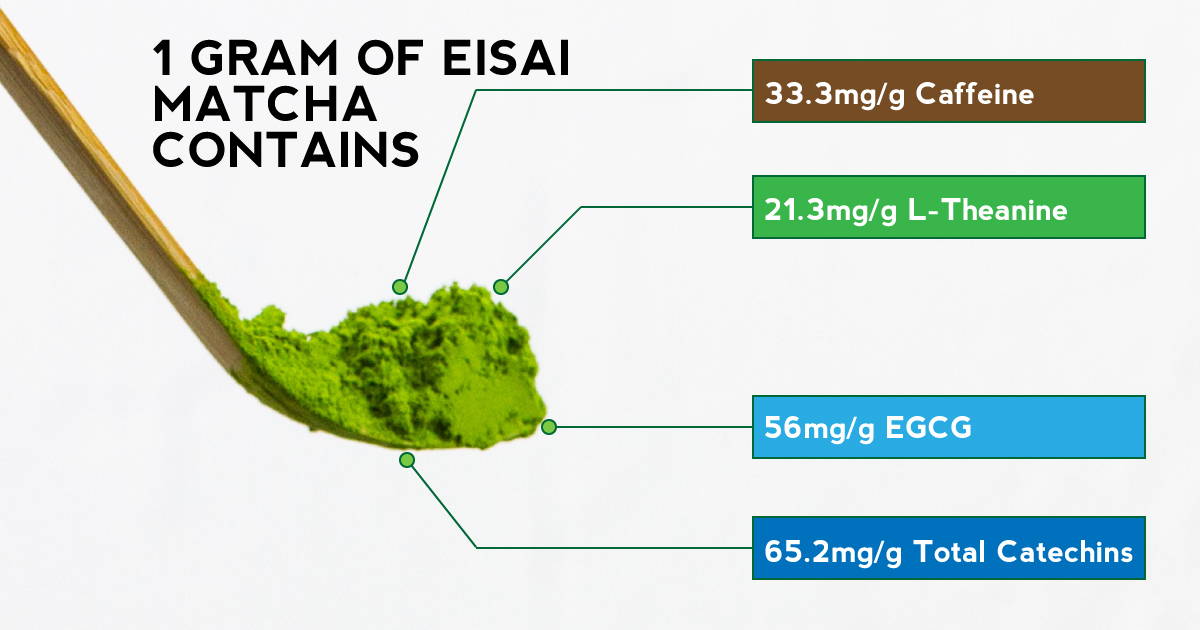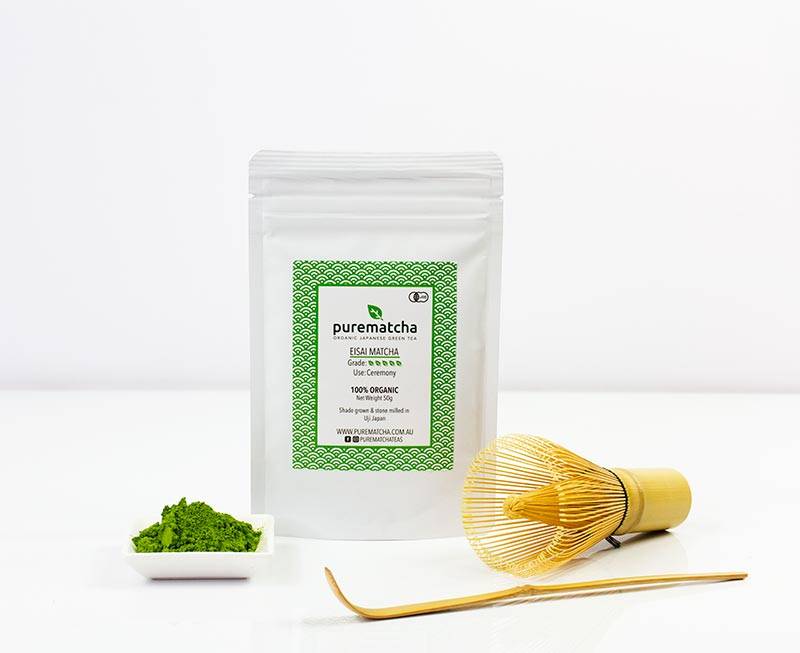Lab Tested: EISAI Matcha Potency Revealed

The colour green has always been associated with good health.
It stands for balance, nature, spring, and rebirth. In Japanese culture, green is associated with eternity, youth, vitality and energy.
So naturally, when commencing your matcha ritual your body already anticipates what’s to come and you begin to feel good even before you take your first sip.
We, at Purematcha can reveal that there is scientific evidence behind the feel good effect of drinking matcha tea on a daily basis.
Time and time again, we have received positive customer feedback about the benefits of Matcha tea has on their health and wellbeing.
The common themes expressed by our customers are - improved focus, sustained energy, improved sleep and an overall improvement associated with their wellbeing.
Here's just a snippet of some of the feedback we've received (Swipe to view feedback)
There are a number of claimed super foods available on the market today and green tea has most definitely earned its place.
There are numerous scientific studies to back up that positive effect you feel after every sip.

In the past we've run a series of safety tests for nasty things like radiation and heavy metals in our Matcha tea - all of which have passed by Australian standards.
This time around we wanted to verify the potency of our very own EISAI Pure Matcha tea and to measure levels of compounds such as L-Theanine, caffeine and catechin content.
We contacted Eurofins Food Testing Australia to conduct compound extraction tests to find out how much of the brain boosting nutrients and levels of antioxidants are actually present in our tea.
But first, let's dive into the individual compounds that make up Matcha green tea.
What is Theanine? (AKA L-Theanine)
L-Theanine is a natural occurring amino-acid found primarily in green tea, black tea and some mushrooms.
Matcha contains higher levels of L-Theanine compared to regular loose leaf tea because Matcha is a shade-grown tea.
A study [1] that assessed the Theanine and Caffeine content of 36 commercial brands of tea showed that green tea had a mean Theanine content of 6.46mg/g and mean caffeine content of 16.28mg/g.
The UPLC analysis method used to measure the Theanine and Caffeine content of our EISAI matcha resulted in 21.3mg/g for Theanine and 33.3mg/g for caffeine.
Sample test date: 30th July 2021.
Sample name: EISAI Ceremonial Grade Matcha (Purematcha)
Reception temperature: 18 °C
Sample code: 726-2021-00016913
Testing agency: Eurofins Food Testing Australia Pty Ltd
So why does Matcha have higher levels of Theanine and Caffeine than commercial grade tea bags?
It's because the shade growing process used with matcha mitigates the photosynthesis in the leaves, which preserves the L-Theanine and other amino acids in the process.
In contrast, tea plantations grown in full-blown sunlight typically have lower levels of L-Theanine due to oxidisation.
Ceremonial grade matcha has even higher levels of L-Theanine because the baby tea leaves at the top of the plant are ripe with chlorophyll and L-Theanine.
What Health Benefits are Associated with L-Theanine?

Matcha - Best Natural Source of L-Theanine
Matcha powder tea is an excellent natural source of L-Theanine. You get 100% of the nutrients when you consume green tea matcha, because you are drinking the entire leaf in powder form.
This is massively different to a regular tea where 60% - 70% of the actual nutrients are thrown away in the tea bag.
1g of EISAI matcha tea powder contains 21.3mg of L-Theanine per serve.
This proves to be an excellent potent natural source of this amazing health benefiting compound.

The Paradoxical Effect of Caffeine and L-Theanine

What are Catechins?
Which foods contain Catechins
Nutritional Antioxidant Analytical Report
| Nutritional Antioxidants | Method | Result |
|---|---|---|
| Catechin | M903W | <5 μg/g |
| Catechin gallate | M903W | <5 μg/g |
| Epicatechin | M903W | <5 μg/g |
| Epicatechin Gallate | M903W | 9,210 μg/g |
| Epigallocatechin | M903W | <5 μg/g |
| Epigallocatechin Gallate | M903W | 56,000 μg/g |
| Gallic acid | M903W | <5 μg/g |
| Gallocatechin | M903W | <5 μg/g |
| Gallocatechin gallate | M903W | <5 μg/g |
| Total Catechins | M903W | 65,200 μg/g |
Sample test date: 30th July 2021.
Sample name: EISAI Ceremonial Grade Matcha (Purematcha)
Reception temperature: 18 °C
Sample code: 726-2021-00016913
Testing agency: Eurofins Food Testing Australia Pty Ltd












